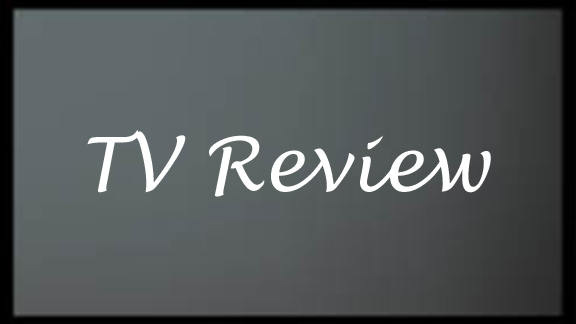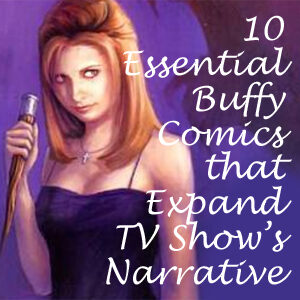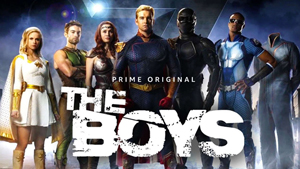“Watchmen” popularized the idea of superheroes run amok, but that saga quickly moves beyond the question of “Who watches the Watchmen?” to its answer of “No one.” “The Boys” (July 2019, Amazon Prime) wallows in the question more, to its benefit.
Superheroes go corporate
Based on a Wildstorm/Dynamite comic-book series that launched in 2006, the eight-episode first season introduces a corporation that sponsors and markets vigilante superheroes, but then it digs into the military-industrial complex. The Vought Corporation aims to have a relationship with the government similar to Lockheed-Martin, but with superheroes – not missiles — as the weapons they are peddling.
That’s the intrigue-laden backdrop for some of the best character writing you’ll find amid our endless superhero boom. Showrunner Eric Kripke, who writes the first two episodes, has improved since creating “Heroes,” which had style but basic superhero tropes. Each episode builds on what came before, with teleplays coming from George Mastras (“Breaking Bad”), Craig Rosenberg, Anne Cofell Saunders, Rebecca Sonnenshine and Ellie Monahan.

“The Boys” Season 1 (2019)
Amazon Prime, 8 episodes
Showrunner: Eric Kripke
Stars: Karl Urban, Jack Quaid, Antony Starr
“The Boys” could’ve been pitched toward humor – film comedy veterans Evan Goldberg and Seth Rogen are producers along with Kripke — and indeed it could be read as a dark comedy or satire. But I see it as a straightforward critique of the halls of power. While members of The Seven are stand-ins for major DC and Marvel heroes, the purpose is not to satirize those heroes but rather to ask “What if those heroes’ morals weren’t as super as their powers?”
The actors are up to the level of the writing. The titular Boys are an eclectic group seeking justice and/or revenge after being wronged by these above-the-law members of The Seven. The audience surrogate is Hughie (Jack Quaid), an electronics store worker whose girlfriend is accidentally killed by Flash parallel A-Train (Jessie T. Usher), who runs right through her and is remorseless.
Urban continues to shine
Mild-mannered Hughie reluctantly hooks up with Billy Butcher (Karl Urban), an independent contractor who is funded by the CIA, which is investigating The Seven. This role is further evidence that Urban is one of today’s best actors.
Butcher, whose wife was perhaps raped and killed by Homelander (Antony Starr), has as much reason for pain and anger as anyone. But Urban gives Butcher a winking quality that suggests he’d enjoy this job even if it wasn’t personal.
Rounding out The Boys are seemingly tough guys Mother’s Milk (Laz Alonso) and Frenchie (Tomer Capon). But M.M. is a devoted family man and Frenchie’s heart of gold shines through when the group links up with a mysterious mute girl with super healing powers, known in the credits as The Female (Karen Fukuhara).
At first glance, he’s a poor man’s Chris Evans, but Starr ends up being exactly what he needs to be as Captain America parallel Homelander. He’s the superhero you love to hate, with smarm dripping off every smile for the news cameras. “The Boys” has a lot to say about the gulf between public perception and behind-the-scenes reality, and Homelander is a master of working both sides of that line.

The great thing about having eight hour-long episodes is that even Homelander gains a human side, as we witness his creepy relationship with his handler, corporate climber Madelyn Stillwell (Elisabeth Shue), whom he sees as both a mother figure and a lover.
A deeper dive than usual
Few of these superheroes can be pegged with an unchanging description, and the same goes for the story, even though it doesn’t waver from its core themes. In this way, “The Boys” is on par with the “Watchmen” film and TV series, and it’s a deeper dive than something like “Captain America: Civil War,” which examines unchecked power in a fashion suitable for blockbuster entertainment.
If Homelander is the worst example of power abuse, Annie/Starlight (Erin Moriarty) is the best case for a superhero organization. She’s the naive rookie member of The Seven, and she’s my favorite character only partly because she’s the cutest.
After fighting crime in her Iowa hometown, she’s happy to be a do-gooder on a larger scale. But the inner workings of Vought are so rotten that she is soon labeled as “the do-gooder” because she’s the exception, not the rule.
Annie and Hughie engage in relationship is a sweet love story, but it has lots of intrigue for the people and their goals. Hughie is genuinely still grieving his girlfriend, so we can laugh for a moment about how he’s playing above his league, but that’s not the point.
Adding tension even amid their cute bowling date, Starlight is a good person working for bad people and Hughie is a good person who is hiding the fact that he wants to see The Seven taken down.
Occupying a gray area
The other five members of The Seven occupy a gray area between Homelander and Starlight, all struggling with their own issues. Wonder Woman stand-in Maeve (Dominique McElligott) tires of Homelander’s duplicity, but she’s not likely to do anything about it; Translucent (Alex Hassell) spies on the women’s restroom but is also a good father; and Black Noir (Nathan Mitchell) is content to get the job done and avoid office politics — when Homelander chews everyone out at a team meeting, he adds “Not you, Noir.”
The Deep (Chace Crawford) is the joke of the group like Aquaman used to be to the Justice League before the DCEU made him cool. But he’s a joke in a sadder sense of the word. Not sharp enough to keep up with the office politics – aside from recognizing that he’s the “diversity hire” — he wants to do good but is bad at it.
The Deep needs and desires guidance on how to be good, and he won’t get that from Homelander or anyone else in the organization, especially since he’s been #MeToo’d after awkwardly propositioning Starlight on her first day.
The theme of nature-versus-nurture particularly plays out through Deep, Homelander (who is raised in a lab) and Starlight (who is raised by a wholesome family). Also, it’s not easy for Hughie to brush aside family and become a full-time revenge seeker. Hughie’s cardigan-wearing dad (Simon Pegg in a rare turn) loves his son and prefers to not rock the boat. Hugh Sr. a lovable guy, yet it can’t be denied that people like him are why evil people can so effortlessly gain and maintain power.
Walking a tightrope
“The Boys” walks the tightrope that corporate-government intrigue stories must. It’s impossible to overthrow such entrenched powers, so the writers can’t show that happening lest the series become a cartoon.
But they also can’t have The Boys be squashed right away; that would be unappealing. Season 1 shows our non-superpowered heroes moving among safehouses even as they compile evidence, and while ultimate victory can’t be achieved, we do see small victories.
The downside of the superhero boom is that it pushes aside projects in other genres. But here we see the upside: Even Hollywood doesn’t want all of its superhero projects to be by the book. “The Boys” demonstrates that coloring outside the lines can lead to the best stories.

